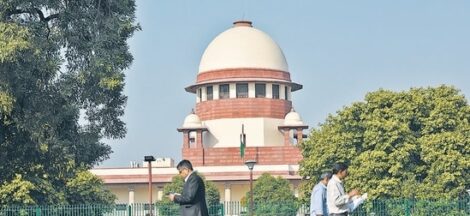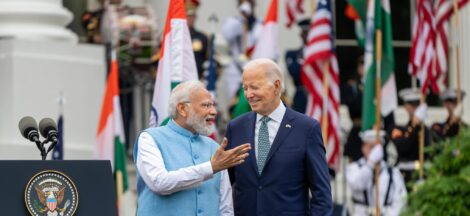It began with Prime Minister Narendra Modi’s advice to the Supreme Court judges in 2015 to be wary of the “five-star” activists who tried to push their social reforms agenda through the courts via public interest litigation. The advice was in keeping with the growing official impatience with non-government organisations (NGOs), especially those with foreign links since the government suspected their commitment to the ruling party’s policies.
Since then, there have been several occasions when the judiciary’s “activism” has annoyed the government. For instance, in 2017, the government’s sense of disquiet was expressed by the attorney general when he told the Supreme Court that privacy was an elitist concept and could not be regarded as a fundamental right. The court rejected this view.
But the fact that the government remains uneasy about the judicial “overreach” was evident when finance minister Arun Jaitley went to town recently with his criticism of a number of recent judgments relating to homosexuality, adultery and the entry of women of all ages into the Sabarimala temple.
In nearly all these cases, the gulf is obvious between what can be deemed as the judiciary’s forward-looking approach and the ruling party’s outlook rooted in the past with an emphasis on a restricted interpretation of Indian, especially Hindu, culture.
The basis of such an approach by the government is the primacy of the views of the society in general, presumably those articulated by the elders as in a khap panchayat, as opposed to individual rights which were derided as a Western concept out of sync with the Indian social scene.
goes without saying that an attitude of this nature which mocks the supposedly deracinated, Anglicized, urban elite will generally receive greater applause, especially when it is couched in terms of upholding the nation’s time-honoured values. In the face of such approbation, the “modernist” is likely to feel cowed and guilty of being brash and disrespectful towards long-established cultural norms.
The stout opposition which the Bengali gentry of the 19th century put up against Ram Mohun Roy’s endeavours to ban widow burning or against Iswarchandra Vidyasagar’s advocacy of widow marriage are examples of the kind of resistance which reformers have always faced.
It is against such social diktats that the modernists have had to work to enact laws prohibiting child marriage or the acceptance of dowry. It is not surprising, therefore, that the judiciary is having to face similar roadblocks at a time when the judges are assuming the role of reformers to put an end to laws and practices which militate against personal liberty and are plainly discriminatory where women are concerned.
Nor is it surprising that the government as well as several parties are playing the role of nay-sayers with regard to individual rights as in the 19th and the early part of the 20th century although we are now well into the 21st century and the country is planning to send a man or woman into space.
The reason why the government and a number of parties is doing so is apparently their belief that an upholder of tradition, irrespective of its antiquity, is looked upon by hoi polloi as a kind of an anointed guardian of widely prevalent customs and conventions while those who dare to chart out a new course are little better than a crude iconoclast who has no faith in age-old beliefs with thousands of followers.
The case of the iconoclast or the idol-breaker becomes worse if he is seen as battling religious rituals because in such instances, rationality automatically takes a back seat. The Sabarimala episode falls in this category because faith is perceived as being above the law.
In fact, this argument of the superior status of faith vis-à-vis the law of the land was advanced by the BJP during the Ramjanmabhoomi agitation to evade the legal strictures against the demolition of the Babri masjid. The U.P. chief minister of the time, Kalyan Singh, smilingly went to jail for a day for his defiance of the judiciary on this count.
Along with religion, traditional “sports” like Jalikattu involving the “taming” of bulls in Tamil Nadu have also been sought to be put outside the judiciary’s purview since a ban on them on the grounds of cruelty to animals can offend the popular sensitivities about longstanding practices.
For the government and the parties which are opposing the Supreme Court’s verdict on Sabarimala, it is politically more convenient to swim with the tide of popular sentiment instead of taking a position which supports the judgments which are in tune with the modern ideas of individual rights.
It can be said with a fair degree of certainty that the mentality of those favouring the curtailment of women’s rights to enter the Sabarimala temple is the same as of those medievalists in Europe who made Galileo recant his heliocentric theory since it went against the prevailing religious belief that the sun moved around the earth. (IPA Service)
The post Hindutva Camp’s Unease With The Supreme Court appeared first on Newspack by India Press Agency.


